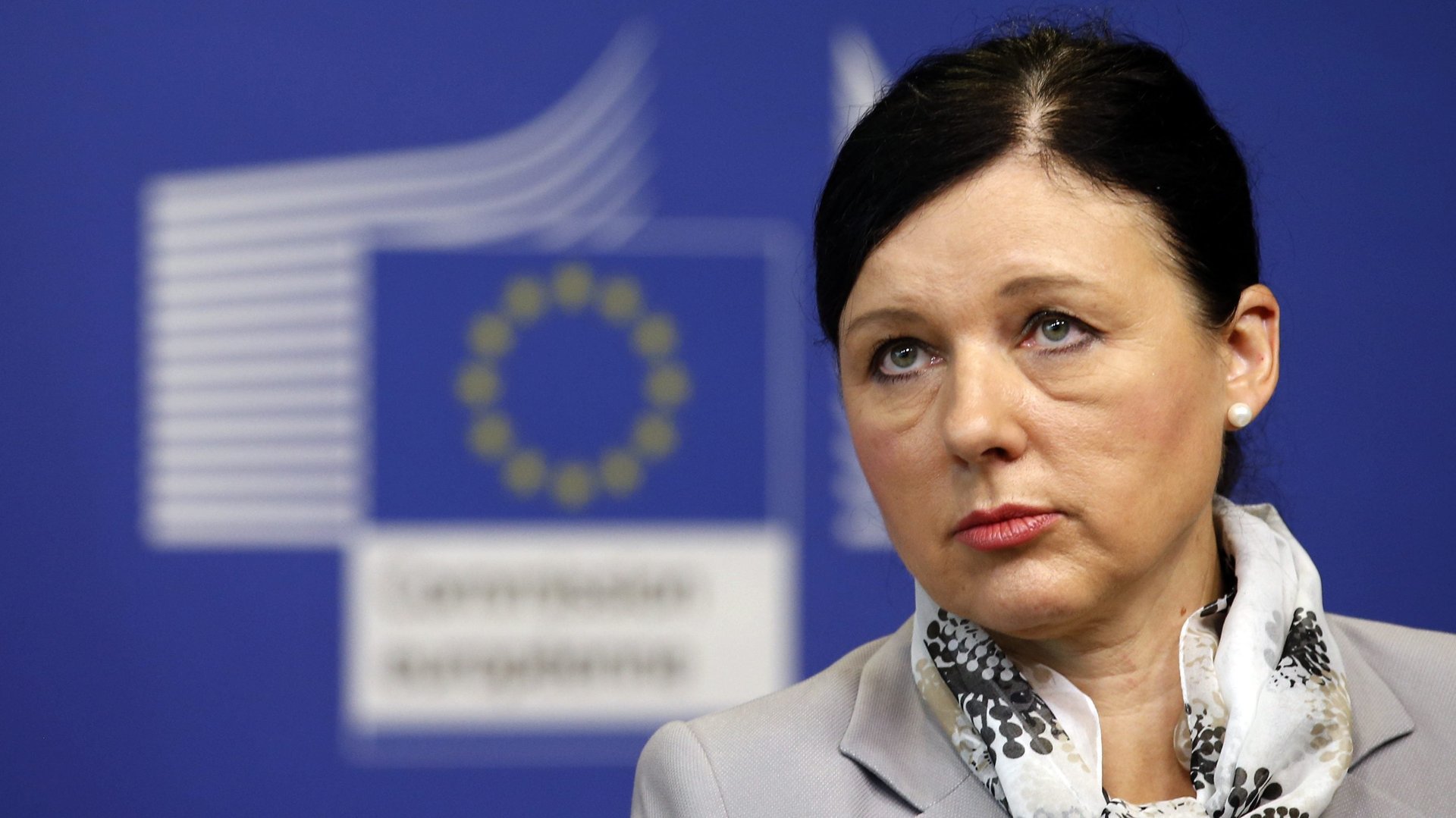The EU is launching a new money-laundering blacklist, after its last one was nixed for naming Saudi Arabia
Shocked by the scale of a €200 billion ($221 billion) money-laundering scandal involving Denmark’s Danske Bank, the European Commission put together a punchy “blacklist” of allegedly dodgy jurisdictions in February, naming four US overseas territories and Saudi Arabia.


Shocked by the scale of a €200 billion ($221 billion) money-laundering scandal involving Denmark’s Danske Bank, the European Commission put together a punchy “blacklist” of allegedly dodgy jurisdictions in February, naming four US overseas territories and Saudi Arabia.
A few weeks of feisty lobbying later, the list was killed, with 27 out of 28 EU member states blocking Brussels from publishing it (paywall). The Saudi government reportedly warned of “severe negative consequences” for European partners—no idle threat, given that France and the UK make billions in arms sales to the kingdom. The US ambassador to the EU publicly said “the way in which it was handled is despicable.” The document would have forced European banks to perform “enhanced” anti-money laundering checks on people and cash coming from the territories on the list.
Less than six months on, EU justice commissioner Vera Jourova plans to launch a new list with a new methodology, drawn up in conjunction with the member states that vetoed the old one. Nonetheless, she insists her team was right to list Saudi Arabia the first time. “We honestly did our best to have the methodology right and to have the assessment right,” she told the Financial Times (paywall), adding that its demise “is still not easy for me to swallow.”
She accepted criticism that the Commission should have communicated with the jurisdictions that were blacklisted, and added that the list was too “one size fits all.” To address those complaints, they are adding a “greylist” tier and talking to the places that could be named and shamed before publishing the list—potentially sparing EU member states and their allies joint embarrassment. Officials expect a public discussion of the draft methodology in October.
Anti-corruption NGO Transparency International welcomed Jourova’s renewed efforts, but warned against diluting the list. “The risk of this becoming a political game is quite high, with the member states intervening quite early in the process,” said Laure Brillaud, a senior policy officer in Transparency International’s Brussels office, who called for the process to be made transparent. “All these blacklists are always a bit of a horse-trading exercise.”
Asked whether the process could end up reflecting political influence rather than actual money-laundering risk, EU spokesman Christian Wigand said in an email: “The Commission is also working with the [non-EU] third countries concerned given that our main aim is to improve their anti money-laundering and terrorist financing framework.” Wigand declined to comment on whether EU allies will be cut from the list.
The EU’s original list was tougher than the annual blacklist issued by the Financial Action Task Force (FATF), an inter-governmental money-laundering authority, which lists only 12 jurisdictions. Most of the territories on the FATF list struggle more with internal corruption than global money laundering.
However, by not naming EU member states and their territories, the EU’s blacklist left out many of the world’s worst money-laundering spots, including the British Virgin Islands and Cayman Islands. “We’ve seen with recent scandals that the EU is a very attractive place for money laundering and dirty money,” said Brillaud. “The EU should make sure to clean up its own backyard, and make sure it doesn’t welcome dirty money via its financial system and real estate sector.”
Correction (Aug. 23): A previous version of this article cited FATF’s Feb. 2019 blacklist. The table has been corrected to reflect the June 2019 list.